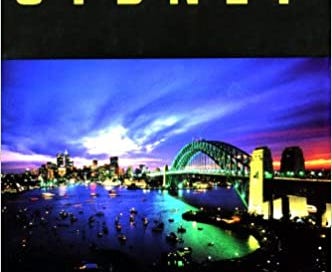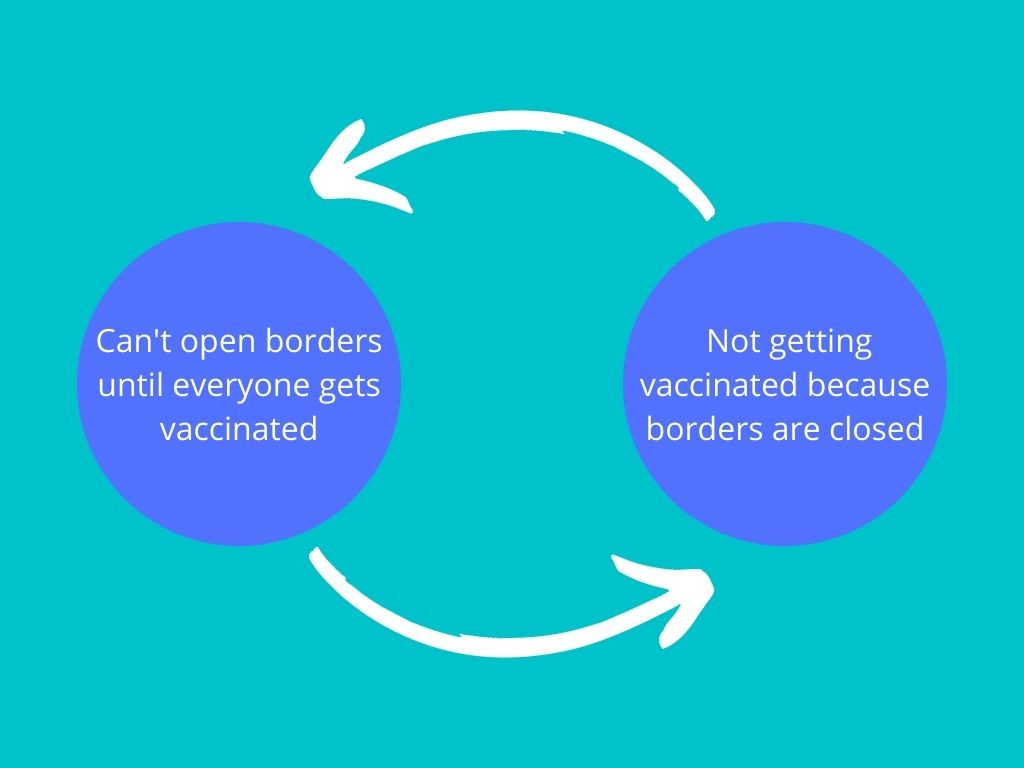Thank god we aren't the rest of the world
I’ve been thinking about putting together this dumb little newsletter for a while. I’m finally writing it now because I have nothing better to do. Perhaps you have nothing better to do than read it.
I read Jan Morris’ Sydney the other week and one of its final paragraphs stuck with me. Morris is sitting in a Kings Cross café, observing how young and happy everyone looks, when:
I caught out of the corner of my eye a very different scene on the television screen. It showed a boat-load of refugees from Cambodia arriving half-starved, destitute and wide-eyed somewhere on the Australian coast, I missed where. They were clinging all over their rickety vessel, hanging over the gunwales, draped over the wheelhouse.
It reminded me of old pictures of those overloaded Manly ferries, and just for a moment I thought it really might be one of Sydney ferry boats that the refugees had commandeered. The Australians on the screen stood aghast to see them come, and remonstrated for a while, but in the end they had to let them land – as if it were on Sydney Cove just down the road, or at Balmoral beside the bandstand. What else could they do?
Read today, the passage is jarring because we know the answer to the rhetorical question: “reject their international obligations and any nagging sense of human decency to set up an elaborate network of refugee torture camps on small Pacific islands.”

Writing in 1992 (as if you couldn’t tell from the cover), Morris1 describes a city – and perhaps by extension a country – newly comfortable with its place in the world, starting to recognise its links with Asia, belatedly coming to terms with the dark side of its history, justifiably confident.
Obviously travel writing (not to mention dumb little newsletter writing) lends itself to sweeping generalisations. But could we make an honest claim to any of that in July 2021, with tens of thousands of Australians refused entry to their own country, the news dominated by state border closures and our social feeds full of insane internecine bickering?
Given all this, the whole sunny book makes for depressing reading. But I think the scene with the boat lives rent free in my head because it illustrates how we got here. The callousness and parochialism of our response to Covid (“nobody can understand what Melbourne went through”), and the popularity of locking Australians out could not have happened without two decades of border hysteria.
Borders loom so large in the national consciousness that they’re seen as the solution to everything. If the only tool you have is [a pathological obsession with the integrity of your borders] every problem starts to seem like an [immigration issue]. Osman Faruqi has tweeted about this a lot.

This isn’t to say that borders aren’t useful tools when it comes to controlling infectious diseases. Of course they are. But you’d hope the aim was to create conditions in which they can be reopened.
Instead, both sides of politics avoid the topic, states open and close like Pie Face franchises in the 2010s and the premier of WA comes out every few weeks and says Predator drones will patrol the border with NSW until 2150 [everyone in WA goes apeshit].
The Delta variant of the virus has revealed the inadequacy of this thinking. All of a sudden our borders aren’t effective, and the only things we have left in the toolbox are lockdowns and vaccines. Lockdowns suck and we’re behind on vaccination, a situation not helped by the fact that many people are so wedded to the Fortress Australia mentality they’re happy to wait for their preferred brand of jab.
The federal government was so chuffed with the success of its border-focused response that it saw no need to hurry on the vaccine front, no need to communicate any urgency. I still haven’t seen one of those “arm yourself” ads in the wild, and while the Melbourne arts community’s vaccine promo was laudable, it’s basically nerd shit that appeals to nobody.
Despite everything that’s happened, we’re still stuck in a flow chart that looks like this:
The main thing we’ve discovered in the last month is that Australian exceptionalism is a mirage, except when it comes to our insularity and the way we treat those stuck beyond our shores.
Morris died late last year, so it’s impossible to know what she’d think of the situation, but I doubt anyone who has been through our offshore prison system is surprised.
Like this post? You can subscribe to special treatie below.
Morris has an all-time Wikipedia entry. I knew she went public about having gender reassignment surgery in the 1970s, which is impressive enough on its own, but as a journalist she also filed the first report on Edmund Hillary summitting Everest and broke the story of European involvement in the Suez Crisis.




